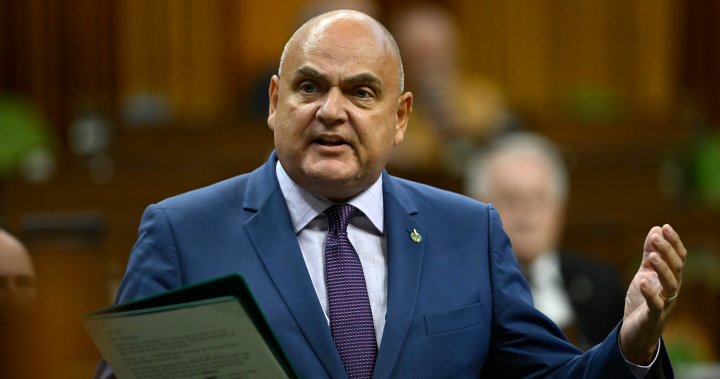Conservative MP Larry Brock, known for his outspoken criticism of ethics in politics, faces eviction proceedings from his taxpayer-subsidized apartment amid allegations of unpaid rent totaling $16,429.23. The dispute, reported in 2023 by Minto Apartment Limited Partnership and documented by the Landlord and Tenant Board, has been contested by Brock’s campaign, which claims all rent was paid on time directly by the House of Commons. Additionally, Brock’s financial disclosures have come under scrutiny for reportedly omitting liens on vehicles, raising questions about transparency as the election campaign intensifies and ethics in public office remain under heightened public attention.
Details of the Eviction Proceedings
The eviction case against Conservative MP Larry Brock was initiated by Minto Apartment Limited Partnership in 2023, citing unpaid rent amounting to $16,429.23. According to documentation from the Landlord and Tenant Board, the landlord alleges that rent payments for the taxpayer-subsidized apartment assigned to Brock were not received as agreed. This has led to formal proceedings aiming to recover the owed amount and potentially evict Brock from the premises.
Claims from Brock’s Campaign
In response to the eviction notice, Brock’s campaign representatives have firmly denied the allegations of unpaid rent. They assert that all rent payments have been made promptly and directly through the House of Commons, which handles subsidies and transactions related to MPs’ accommodations. The campaign maintains that any assertion of nonpayment is either a misunderstanding or a clerical error, emphasizing that Brock has fulfilled his financial obligations according to government procedures.
Scrutiny Over Financial Disclosures
Adding to the controversy, Brock’s recent financial disclosures have come under examination after reports emerged that liens on vehicles owned by the MP were omitted. Transparency and full disclosure of financial interests are critical components of ethical standards for public officials, especially during election periods. Critics argue that such omissions could undermine public trust and raise concerns about compliance with ethical requirements.
Context Amid Election Campaign and Ethical Focus
This dispute arises at a sensitive time as the election campaign intensifies, with ethics in public office remaining a significant point of public interest and debate. Brock, known for his vocal stance on political ethics, now faces personal financial controversies that may impact public perception. Analysts suggest that the situation could influence voter sentiment and further fuel discussions about accountability among elected officials.
Potential Implications
- If eviction proceedings succeed, Brock could be forced to vacate the government-subsidized apartment during the election period.
- Questions around financial disclosure compliance may trigger further investigations or calls for stricter enforcement of ethical guidelines.
- The ongoing dispute highlights challenges faced by MPs in balancing personal financial management with the expectations of transparency and accountability to the public.
Looking Forward
The case remains active and subject to updates as new information emerges. Both Brock’s campaign and Minto Apartment Limited Partnership have expressed willingness to resolve the matter, although legal proceedings continue. Observers and constituents will likely monitor developments closely, given the broader implications for political integrity and the conduct of public officials.
In summary, the eviction proceedings against Conservative MP Larry Brock bring to light significant issues surrounding financial transparency and accountability in public office, particularly at a time when ethical conduct is under close scrutiny during the election campaign. While Brock’s campaign disputes the unpaid rent allegations and claims compliance with government payment procedures, the controversy involving omitted financial disclosures adds complexity to the situation. As legal processes unfold, the outcome may have important ramifications for Brock’s political standing and the perception of ethics in government. The situation underscores the ongoing challenges elected officials face in meeting both personal financial responsibilities and the public’s expectations for openness and integrity.

